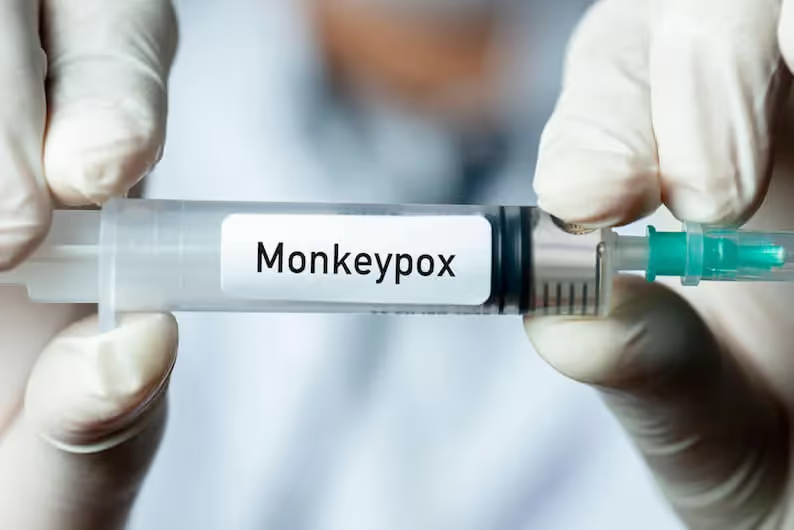As if the past couple of years hasn't been crazy or stressful enough with coronavirus, now another virus is making a name for itself in the headlines. You've probably heard about it on the news or read about it online. Not to be confused with chickenpox, monkeypox is a virus that, like coronavirus, began overseas but is now making a presence here in the United States. However, before the latest outbreaks, monkeypox largely was limited to a few thousand cases annually in Central Africa, according to the World Health Organization (WHO). The first confirmed case in 2022 in the U.S. was on May 18 in Massachusetts. A resident tested positive after returning from a trip to Canada. And now, as of July, the CDC has confirmed cases in more than half the country. Although monkeypox is not a new or unknown virus, most of us know little or nothing about it. So, what is monkeypox, and should you be worried?
What is Monkeypox?
Monkeypox is a rare disease that is a relative of smallpox and cowpox diseases. Scientists discovered it in 1958 when colonies of research monkeys developed a pox-like illness, according to the Center for Genome Sciences at the U.S. Army Medical Research Institute of Infectious Diseases. However, the first human case was in 1970 in the Democratic Republic of Congo. In 2003, the U.S. had a monkeypox outbreak in the Midwest when 47 cases were reported. It is said to have occurred after individuals had contact with pet prairie dogs that were housed near a shipment of small mammals from Ghana that were infected with the disease.
Monkeypox Symptoms
Symptoms of monkeypox begin to develop one to two weeks after being infected with the virus. Early symptoms include:
- Fever
- Headache
- Muscle aches
- Backache
- Swollen lymph nodes
- Chills
- Exhaustion
Within one to three days after developing a fever due to monkeypox, people develop a rash that often resembles pimples or blisters. The rash usually appears on the face first and then travels to inside the mouth and on other parts of the body, like the hands, feet, and chest. The rash goes through different stages before healing completely. It can take two to four weeks to rid the body of the infection.
How Does Monkeypox Spread?
Monkeypox can spread in different ways, either through exposure to an infected animal or person. For example, animal-to-human transmission can occur if scratched or bitten or by preparing or eating meat from an infected animal. According to the CDC, human-to-human transmission spreads through:
- direct contact with the infectious rash, scabs, or body fluids
- respiratory secretions during prolonged, face-to-face contact, or during intimate physical contact, such as kissing or sex
- touching items (such as clothing or linens) that previously touched the infectious rash or body fluids
- pregnant people can spread the virus to their fetus through the placenta
Treatment for Monkeypox
Although there are no treatments specifically for monkeypox virus infections, it is well understood by infectious disease experts. Because monkeypox and smallpox viruses are genetically similar, antiviral drugs and vaccines used to treat smallpox may be used to prevent and treat monkeypox. Monkeypox, like smallpox, spreads very slowly, making vaccination an effective way to stop outbreaks. However, the smallpox vaccine hasn't been publicly available, as the World Health Organization declared smallpox eliminated in 1980. The United States does have a supply of the vaccine and has been administering the vaccine as needed to those with weakened immune systems or at high risk of adverse reactions from the virus.
Who's At Risk for Monkeypox?
Despite the recent infections in areas where monkeypox is uncommon, health experts are warning against overreacting. Unless you're traveling out of the country or come in direct contact with someone infected with monkeypox, you're at little risk of contracting the rare disease. Still, there are things you can do to protect yourself and reduce your risk, especially if you're traveling to Africa or the United Kingdom.
- Wash your hands regularly with soap and water
- Only eat thoroughly cooked meat
- Don't go near stray or wild animals, dead or alive
- Avoid people who are sick
- Don't touch meat from wild game
All in all, there's no need to panic. Don't let the media and all the recent coverage frighten you. Unlike we were in the beginning of Covid-19, we know what we are dealing with when it comes to monkeypox. Just take precautions and continue to practice safety measures just as you would for Covid-19 or any other virus.




